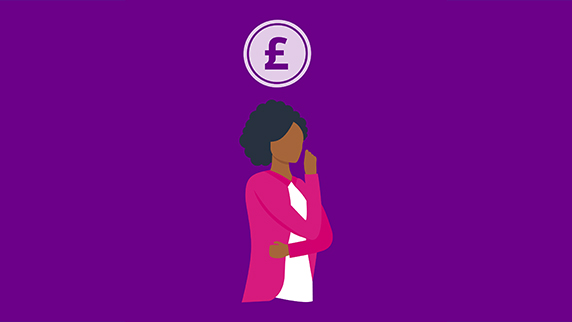
What's crowdfunding? What are the risks?
For investors, crowdfunding apps and websites offer the chance to make money by investing in small fast-growing businesses. For entrepreneurs, they can be a great way to raise a business’s profile - and cash. But, if you are tempted to get involved, be aware of the risks.
What is crowdfunding?
Crowdfunding lets small businesses and individuals raise money from investors, ‘the crowd’, who all invest small amounts in the business or cause. It started as a way to fund creative projects such as films, theatre projects and music recordings. It now allows almost anyone to raise money from friends, family or complete strangers.
Two common types of crowdfunding which can appeal to investors as a way to make money are:
- Loan-based crowdfunding: also known as peer-to-peer or P2P lending. You lend money to individuals or businesses via a platform in exchange for a set interest rate.
- Investment-based crowdfunding: you invest in a company and get a stake in the business, often as shares, and sometimes perks too - freebies or discounts on the company's products or services.
Popular P2P platforms include Zopa, Funding Circle and StepLadder - who specifically target people looking to save to buy their first home. Two of the biggest investment-based platforms in the UK are Crowdcube and Seedrs.
There are also two types of crowdfunding that aren't seen as investment opportunities, which you probably see more often. With donation-based crowdfunding, like GoFundMe, you're just giving your money away and not expecting anything in return. This is often used to fundraise for charity or to help an individual in need.
Reward-based crowdfunding platforms like Kickstarter and IndieGoGo are there to help get a project off the ground, or bring a new idea to market - where your 'reward' is usually being the first to get your hands on the product, sometimes at a discounted price.
What are the risks of crowdfunding?
All types of crowdfunding are considered 'high-risk' investments. There's no guarantee you’ll get the return on your money you were hoping for or the product you were promised.
The biggest risk with investment-based crowdfunding is that the business you invest in goes bust and the shares become worthless. One risk with P2P lending is that borrowers miss their repayments, which could mean you receive less interest than you expected or even lose the money you invested in the first place.
Another possibility is the platform itself failing, which could make it very difficult to access your money or you may lose it altogether.
Can I access my money if I need it?
You usually can’t pull out your money when you want; once you’ve put money in, it can be tied up for a long time. Crowdfunding is definitely not a 'get-rich-quick' scheme. For loan-based crowdfunding, you're often entering into a two-to-three-year commitment or more, as your money has been lent to other people or businesses who will pay it back (usually with interest) over a set amount of time.
For investment-based crowdfunding, you will usually only get your money back (including any return on your investment) if the company floats on a stock exchange, is bought by another company or if the management buys back your shares.
What are the benefits of crowdfunding?
Crowdfunding can be a good way for a business to raise money and its profile. It is often easier or quicker than getting a loan from a bank or raising funds from specialist venture capital investors.
For investors, crowdfunding is often a way to support a local cause or business and can offer higher returns than traditional investments. It can also be simple and quick to set up - you can download an app, answer a few questions, and be investing in minutes.
The amounts involved can start small too. Many businesses who raise money through crowdfunding will take 'backers' investing as little as £10, which is a lot less than other types of investments.
What protection can FSCS offer?
Many crowdfunding platforms are authorised and regulated by the Financial Conduct Authority (FCA). It introduced new rules at the end of 2019 designed to protect investors but also still allow for innovation in the sector. You can check the FCA register to see if it authorises the platform you're considering. If it is authorised, it must follow these rules.
FSCS protection in this area is very limited. We can't cover poor investment performance, for example, if the company you invest in isn't as successful as you expected. We may be able to pay compensation if you received unsuitable advice to invest, depending on your circumstances.
Many sites and apps will clearly state 'no FSCS protection' or something similar to help you understand the risks involved. You can always ask your provider our key questions before you commit to anything to find out what FSCS protection is available.
You can find out more about investment protection and our compensation limits on our dedicated page.